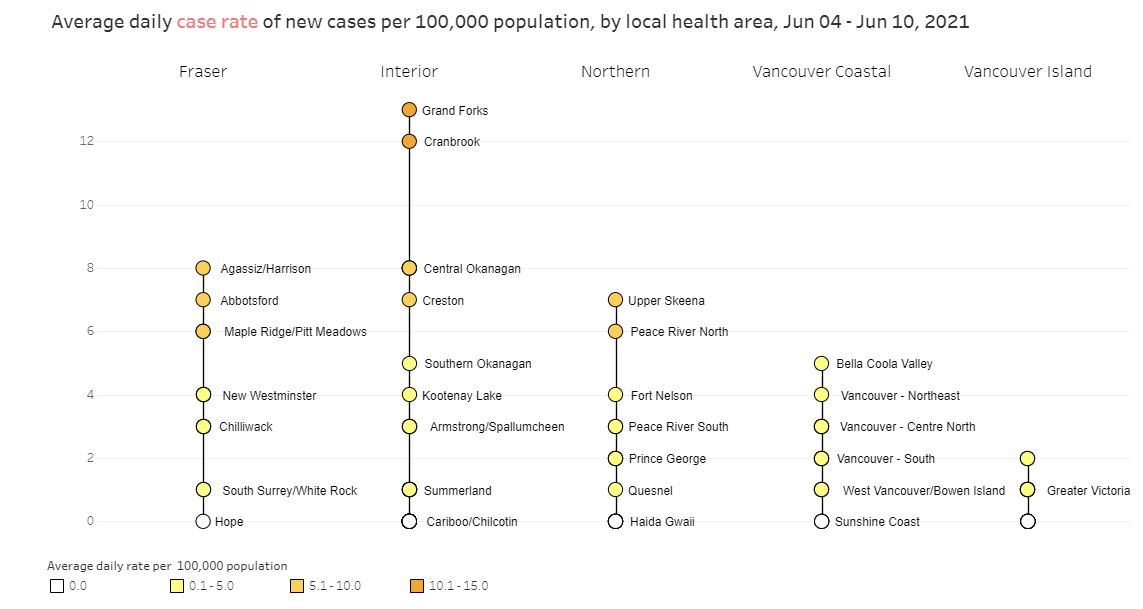Nestled between the Okanagan Valley and the Kootenays, the city of Grand Forks is known as the hub of the Boundary region.

But now the West Kootenay community that is home to about 4,000 people – is also a B.C. COVID-19 hot spot.
“It concerns me a lot,” said resident and market vendor Tara Werner.
“We’re not immune to it.”

Data from the BC Centre for Disease Control shows that from June 4 to 10, Grand Forks had the highest transmission rate in the province by local health area, with an average of 13 new cases daily for every 100,000 people.
“The statistics can be alarming,” Mayor Brian Taylor told Global News.

Get weekly health news
“Certainly we are very alarmed here and I want to encourage everyone to get out and get vaccinated.”
The city, like many in B.C., is slowly reopening and residents say they are concerned about living in a hot spot.
“We have actually a lot of immunocompromised people here,” said market vendor Stephanie Lang.
“That means it’s a really scary time for most people.”
Some residents suggest school transmission may be behind the increase in cases while others suspect pandemic fatigue may be to blame.
“I think what happened is probably complacency, people are getting a little tired,” Werner said.
“We’re seeing cases rise in areas where vaccination levels are low,” Sally Otto, a UBC mathematical biologist and member of the B.C. COVID-19 Modelling Group told Global News.
But Otto said the situation in the affected communities is not as bad as it was before mass immunizations.
“None of these hot spots are anywhere near the worst of the hot spots that we saw a couple months ago.”
Otto said it’s important for faith and community leaders to step up and help encourage people to get the shot, which Taylor is doing.
“Get out and get vaccinated especially the young people,” said Taylor, who believes the 20 to 40 age group is the target population for moving us forward.

Interior Health is holding vaccination clinics at the Grand Forks Curling Club, where there was no line-up during drop-in hours on Saturday.
While Global News saw several residents stopping by to get their second jab, Taylor is hoping those who’ve been procrastinating will take the opportunity to get their first vaccine.
Grand Forks recorded 11 new COVID-19 cases between May 30 and June 5. The mayor said his city is a safe place and will be open to local tourists again – once health officials give the green light for travel across the province.
“I’d like us to be known as the hot spot for something different than that,” Taylor added.










Comments
Want to discuss? Please read our Commenting Policy first.